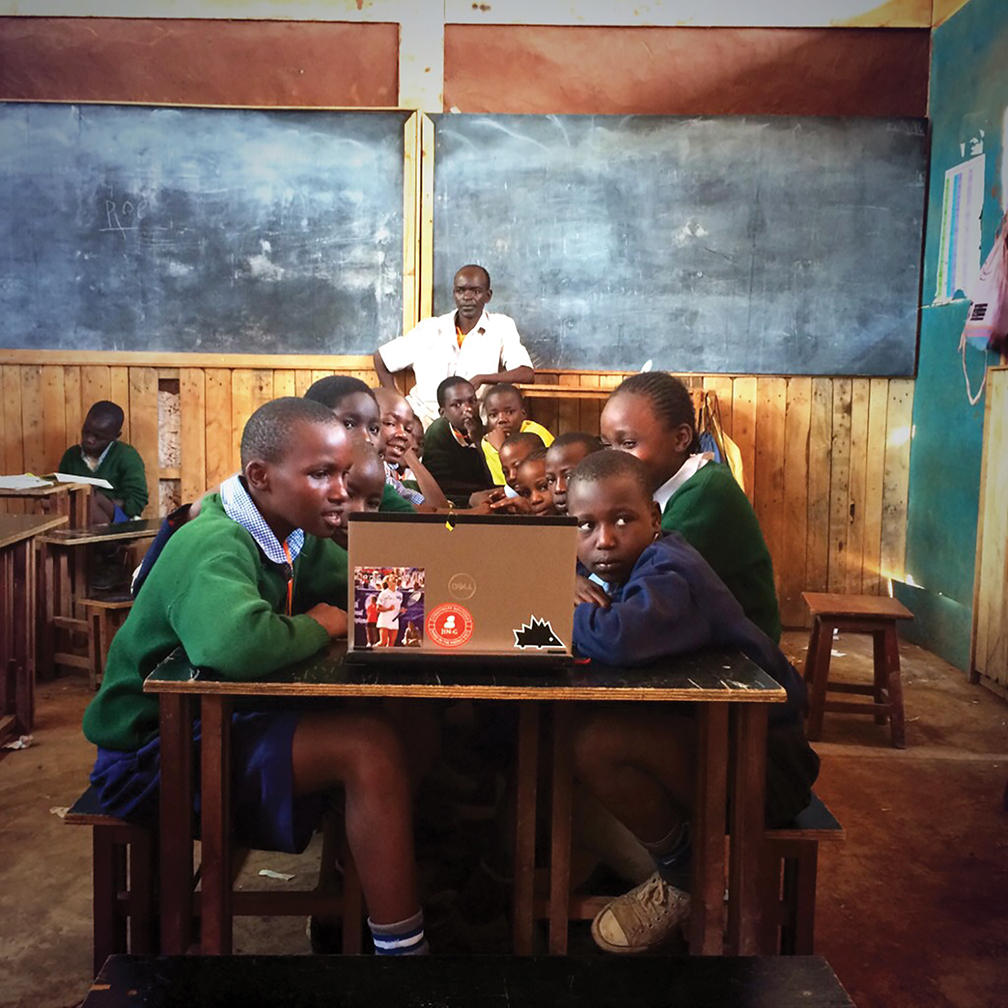BBC NEWS AT BBC.CO.UK/NEWS
Entrepreneurs Nissan Bahar and Franky Imbesi are increasing computer access by providing an operating system on a USB thumb drive. They are testing the project in the slums of Nairobi, Kenya, and hope to sign up 150,000 people in the country.
Bahar and Imbesi’s Keepod USB stick will revive old PCs and let users have their own computer experience — desktop layout, programs and data — at a fraction of the cost of providing a laptop, tablet or other machine to each person.
The pair have teamed up with LiveInSlums, a nongovernmental organization operating in the Nairobi neighborhood of Mathare, to introduce the flash drives at WhyNot Academy.
Bahar and Imbesi bought a router and a SIM card to connect classrooms to the Internet in March 2014. They also brought five old laptops with their hard drives removed. They gave each child a Keepod USB stick to keep and explained that the secondhand computers would boot up directly from the flash drives. Each Keepod 8-gigabyte stick includes a unique desktop version of Google’s Android 4.4 operating system. Even if a Keepod is infected with malware, it should not spread to the host computer.
Keepods make any computer as simple to use as a smartphone, with icons displayed for each task or saved website. Each encrypted Keepod remembers its owner’s settings, passwords and websites visited, and stores downloaded files and programs. “Each child will see their own files and apps appear in exactly the same way each time, without the need to remember lots of passwords,” Bahar said.
The aim is for Keepod to eventually support itself. Bahar and Imbesi want local workers to buy the flash drives on the open market, install the operating system and a few essential apps, and sell them for a small profit.
The $7 price includes about $2 in profit on each device to help cover wages and project expansion. The startup also plans to provide a Keepod backup facility, offering a way to protect owners from losing their files if the USB device is lost or corrupted.

